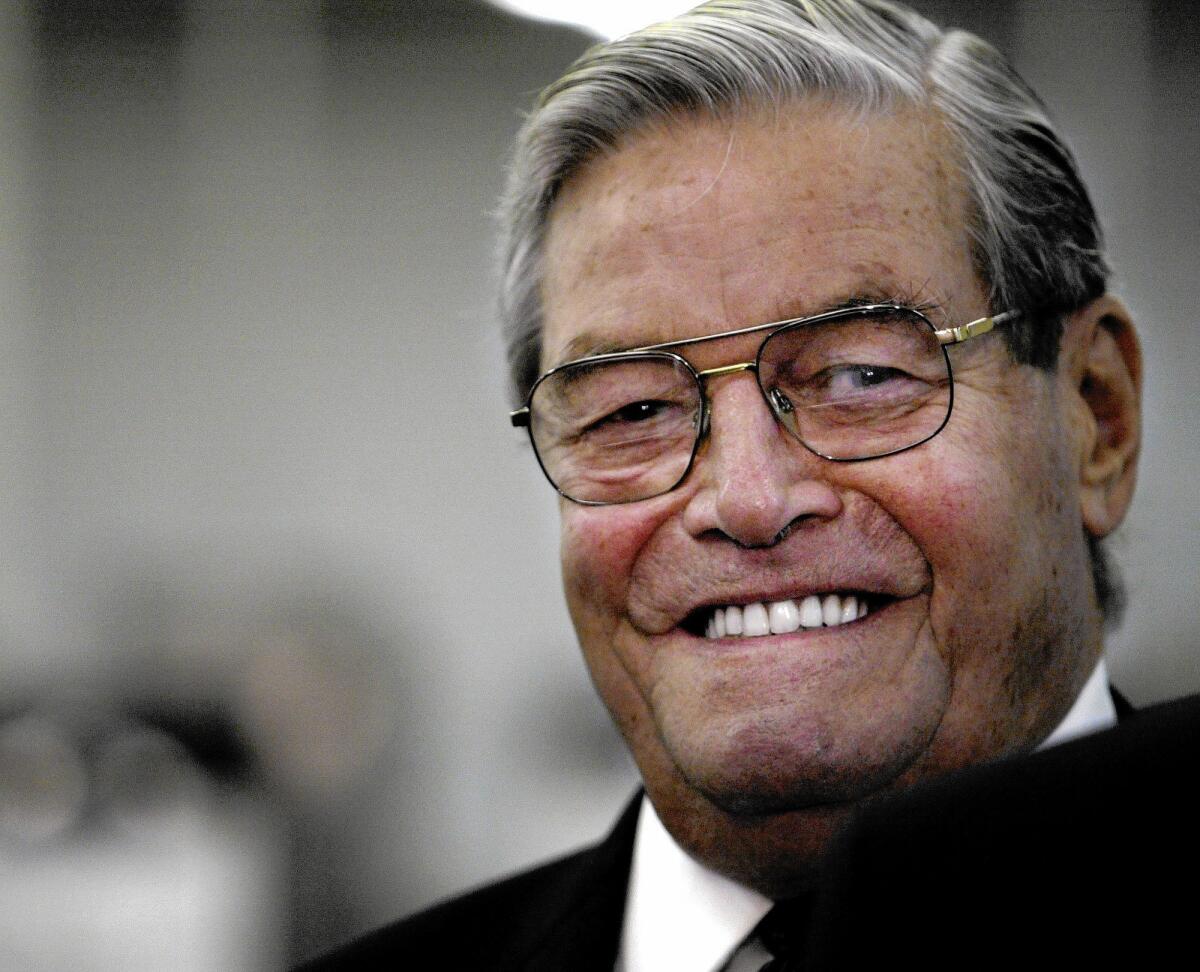Philip M. Crane, key figure in conservative politics, dies at 84

In the early years of his long congressional career, Philip M. Crane was a key figure in the fledgling conservative movement that became a standard of American politics.
In the 1970s, the Illinois congressman’s home outside Washington was the meeting place of some of the capital’s most influential conservatives. His writings guided the political philosophy that led to Ronald Reagan’s presidency and the Republican takeover of Congress in the mid-1990s.
“Phil Crane was one of the great intellectual leaders who pioneered the way for Ronald Reagan and convinced people like me that constitutional conservatism was vital,” said former House Speaker Newt Gingrich, who in 1994 helped Republicans win control of the House for the first time in four decades.
Crane, who suffered from congestive heart failure and lung cancer, died Saturday at the Jefferson, Md., home of one of his daughters, his family said. He was 84.
Born in Chicago on Nov. 3, 1930, Crane received his undergraduate degree from Hillsdale College in Michigan and a doctorate in history from Indiana University. He served in the Army from 1954 to 1956.
He became a national figure in the conservative movement while working on Barry Goldwater’s presidential campaign in 1964, the year he published “The Democrat’s Dilemma.”
In 1969, when then-Rep. Donald Rumsfeld decided to resign his post to serve in the Nixon administration, Crane won the seat in a special election and went on to represent the northwest suburban Chicago district for 35 years.
While in Congress, Crane founded the Republican Study Committee, a conservative organization in the House; helped to form the Heritage Foundation, a conservative think tank; and served for a time as head of the American Conservative Union, which rates the conservative credentials of members of Congress.
He spent most of his career as a member of the House Ways and Means Committee, where he pushed for a simpler tax code, lower taxes and free-market economics. As chairman of the subcommittee on trade, he led the effort to pass the North American Free Trade Agreement.
Crane made a run for the Republican presidential nomination in 1980 but dropped his bid early in the race.
After Reagan won the presidency, Crane’s influence began to wane. After Republicans took over the House in the mid-1990s, he was passed over for chairmanship of the Ways and Means Committee in favor of Bakersfield’s Bill Thomas, which deflated his ambition.
Crane also struggled during the 1990s with a dependence on alcohol. He sought treatment in 2000 and publicly discussed his alcoholism and recovery.
When he lost his seat to Democrat Melissa Bean in 2004, Crane was the longest-serving Republican member of the House.
His survivors include seven children and numerous grandchildren.
More to Read
Start your day right
Sign up for Essential California for the L.A. Times biggest news, features and recommendations in your inbox six days a week.
You may occasionally receive promotional content from the Los Angeles Times.






